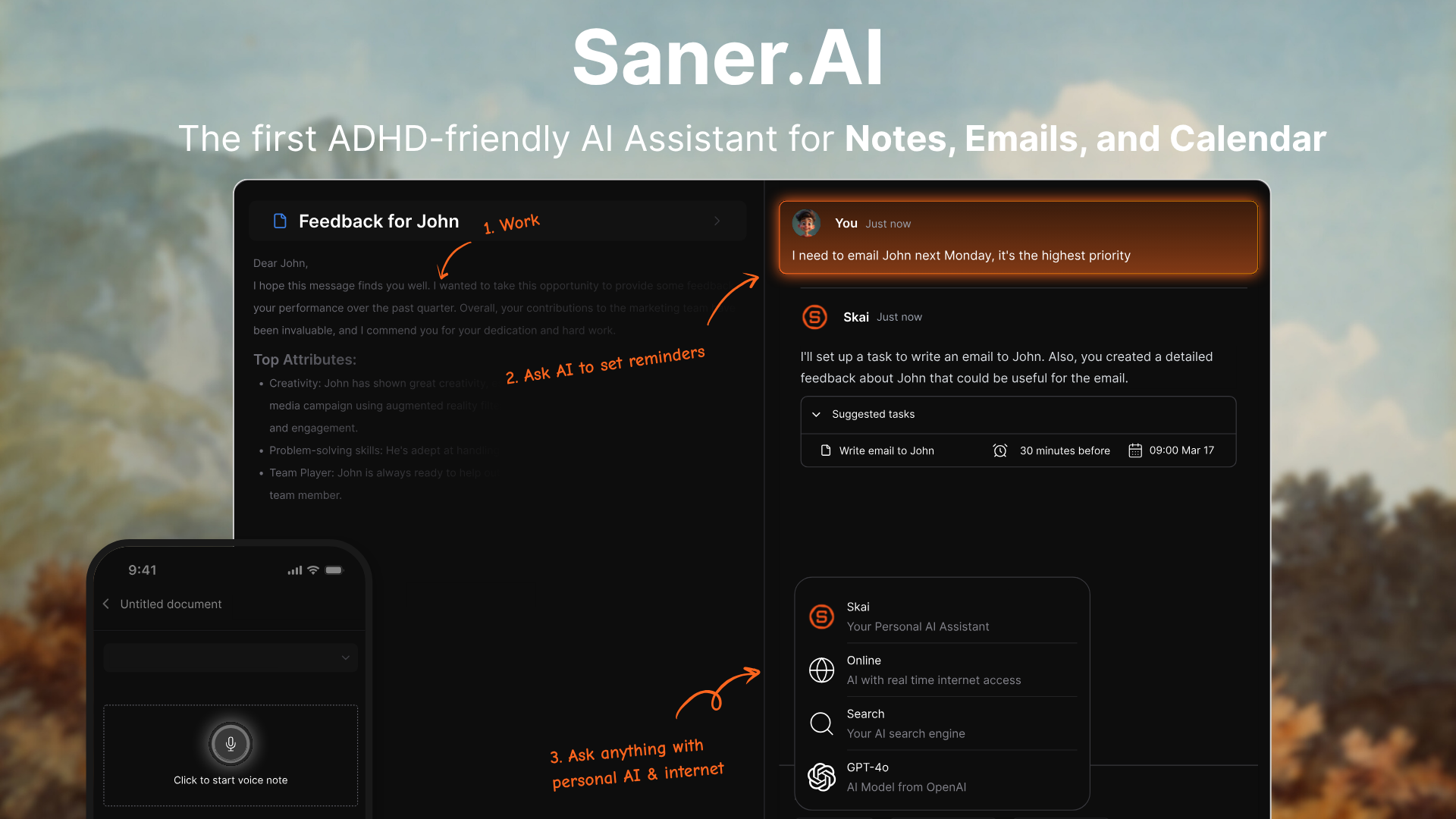What exactly is Artificial Intelligence (AI)? [Update 2025]

AI is a revolution, a story of invention that is opening new possibilities in the world we live in today.
1. What is Artificial Intelligence?

The simulation of human intelligence processes by machines, particularly computer systems, is known as artificial intelligence. Expert systems, natural language processing, speech recognition, and machine vision are examples of AI applications.
Though humanoid robots like Data from Star Trek: The Next Generation or Terminator T-800 don't exist yet, you've probably engaged with machine learning-powered services or products before.
At its most basic, machine learning employs algorithms trained on data sets to develop machine learning models that enable computer systems to do tasks such as making song recommendations, determining the quickest route to a location, or translating text from one language to another.
Some of the Artificial Intelligence apps in use today are:
- ChatGPT: Uses large language models (LLMs) to generate text in response to questions or comments posed to it.
- Saner.ai: is using LLM and RAG to answer user queries.
- Google Translate: Uses deep learning algorithms to translate text from one language to another.
2. 5 Examples of Artificial Intelligence

To help you better comprehend the impact of AI on life, consider the following examples:
Assume you are a manager in charge of a large project with significant business implications. However, the project has several stages, with an overwhelming workload producing trouble remembering, an abundance of data causing confusion, and difficulties delegating duties to subordinates, ultimately resulting in overload. At this point, AI serves as a second brain to assist you in addressing all of these challenges in the following ways:
Too Many Stages:
- Challenge: Your project has too many stages, making it difficult to monitor and manage each step.
- AI Assistance: AI can establish an automated project management system, tracking progress and alerting when a stage encounters difficulties. It helps the team easily understand and keep up with tasks.
Information Overload:
- Challenge: A large amount of information may overload you, making it challenging to process and assess crucial data.
- AI Assistance: AI can utilize fast data processing to categorize and prioritize important information, enabling efficient information management.
Task Allocation:
- Challenge: Deciding how to allocate tasks efficiently and fairly among team members.
- AI Assistance: AI can use data on skills and past performance to suggest suitable task assignments. It can also predict each member's ability to complete tasks
Time Management:
- Challenge: Difficulty in ensuring timely completion of all project stages and tasks.
- AI Assistance: Integrated with Automatic Scheduling, AI creates schedules and proposes optimal solutions to ensure project completion on times
Decision Effectiveness:
- Challenge: Decision-making in project management is sometimes inaccurate and time-consuming.
- AI Assistance: Decision Advisory System utilizes analytical data and predictions, aiding in making decisions based on comprehensive and accurate information.
Therefore, AI can be a useful assistant, helping address project management challenges by automating processes, classifying information, allocating tasks, managing time, and providing decision support.
For each AI support method, here are some suggested AI applications
- Project Management: Trello, Asana, Saner.ai
- Take notes and AI chat: Saner.ai
- Data Processing: IBM Watson.
- Task Allocation: Jira Align.
- Automatic Scheduling: Microsoft Project.
- Decision Advisory: Salesforce Einstein Analytics.
3. Benefits and Drawbacks of AI

Artificial neural networks and deep learning AI technologies are rapidly evolving, owing to AI's ability to analyze enormous volumes of data considerably faster and generate more accurate predictions than humans.
AI has many benefits and drawbacks. Some of the benefits of AI are:
- Performing tasks that need attention to detail: AI can be as good as or better than doctors at detecting some cancers, such as breast cancer and melanoma.
- Saving time for tasks that use a lot of data: AI is popular in industries that handle large amounts of data, such as banking and securities, pharma and insurance. It can process data quicker and more precisely. For example, financial services use AI to manage loan applications and prevent fraud.
- Saving labor and improving productivity: An example is warehouse automation, which rose during the pandemic and will increase more with AI and machine learning.
- Providing consistent outcomes: The best AI translation tools are very consistent, letting even small businesses talk to customers in their own language.
- Improving customer satisfaction with personalization: AI can tailor content, messages, ads, recommendations and websites for each customer.
- Providing 24/7 service with virtual agents: AI programs do not need to rest or take breaks, so they can help customers anytime.
However, AI also has some drawbacks, such as:
- Costly.
- Needing high technical skills.
- Having a limited supply of skilled workers to make AI tools.
- Showing the biases of its training data, on a large scale.
- Having trouble generalizing from one task to another.
- Replacing human jobs, raising unemployment rates.
4. Saner.AI's Artificial Intelligence
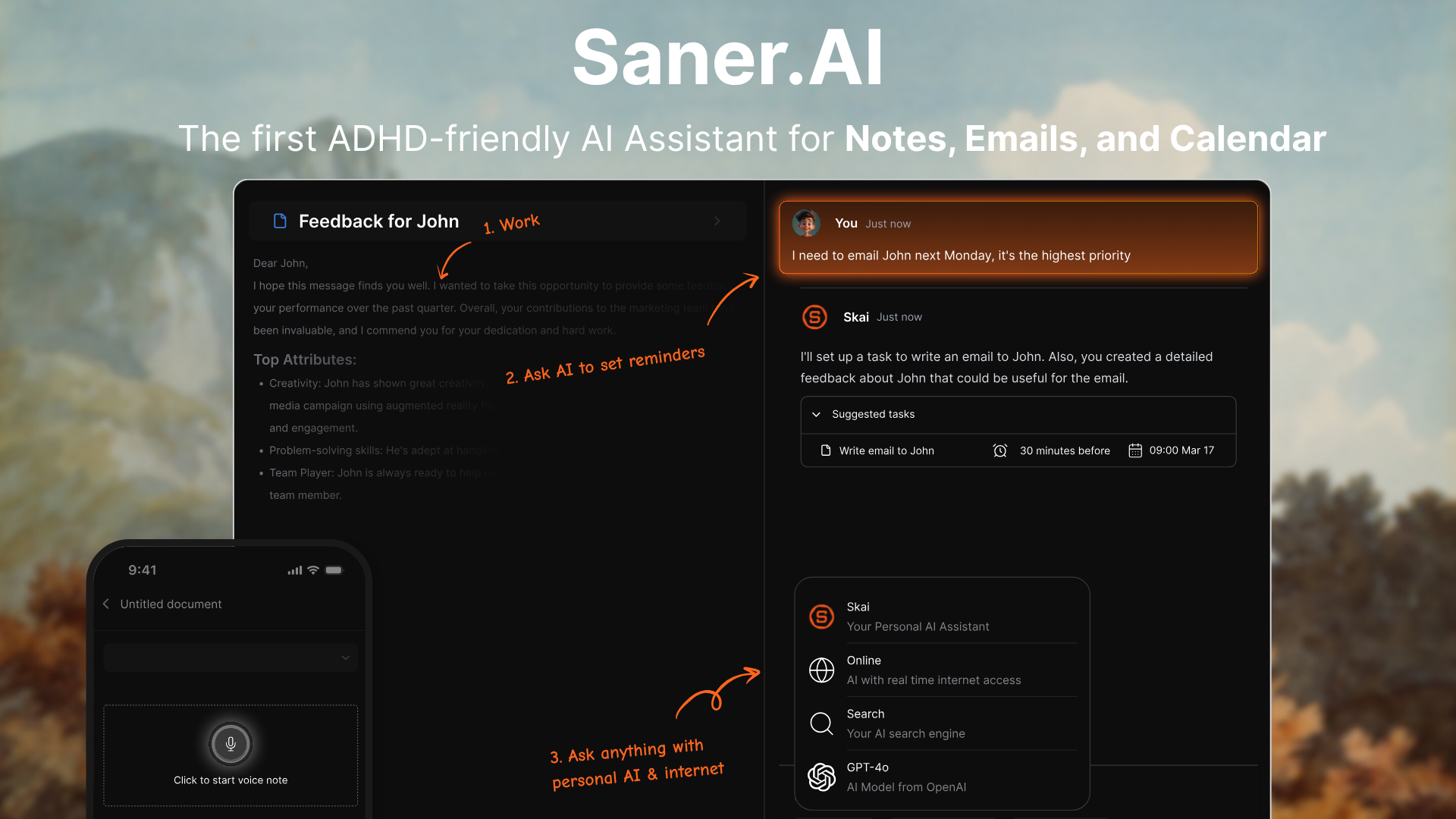
Unlike traditional automation tools, Saner.AI combines artificial intelligence with a human-centered design to help you stay focused, make better decisions, and reduce mental overload. Here's how it works:
🔍 Smart Search & Contextual Understanding
- Understands natural language queries across your emails, notes, tasks, and calendar
- You can ask:
→ “What did I promise to follow up with Sarah last week?”
→ “Summarize notes from my March investor meetings.”
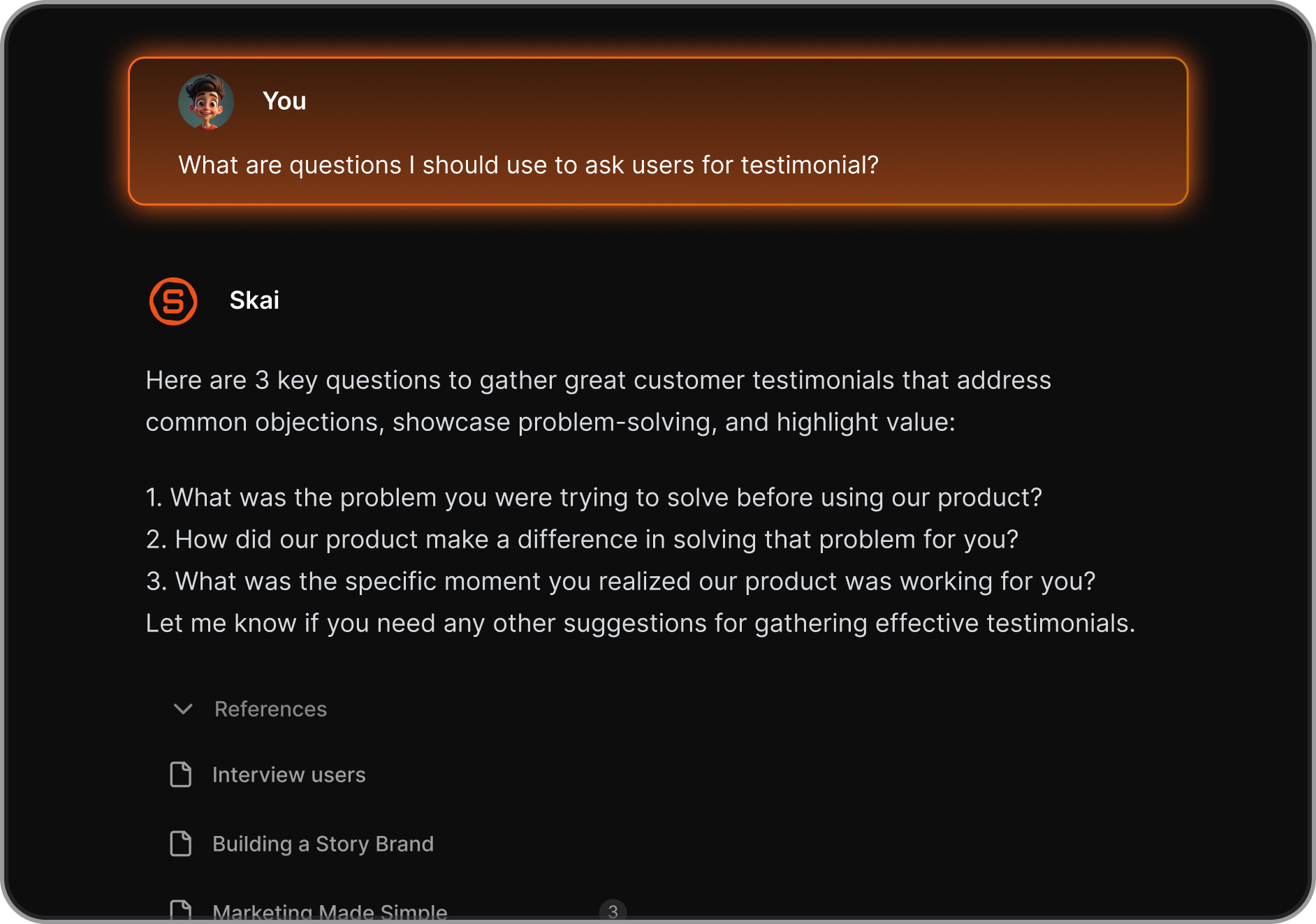
- Uses semantic AI search (not keyword matching) to surface the exact info you need - even if it’s buried
📅 Proactive Day Planning
- Every morning, Saner.AI scans your calendar, inbox, and to-dos to generate a personalized day plan
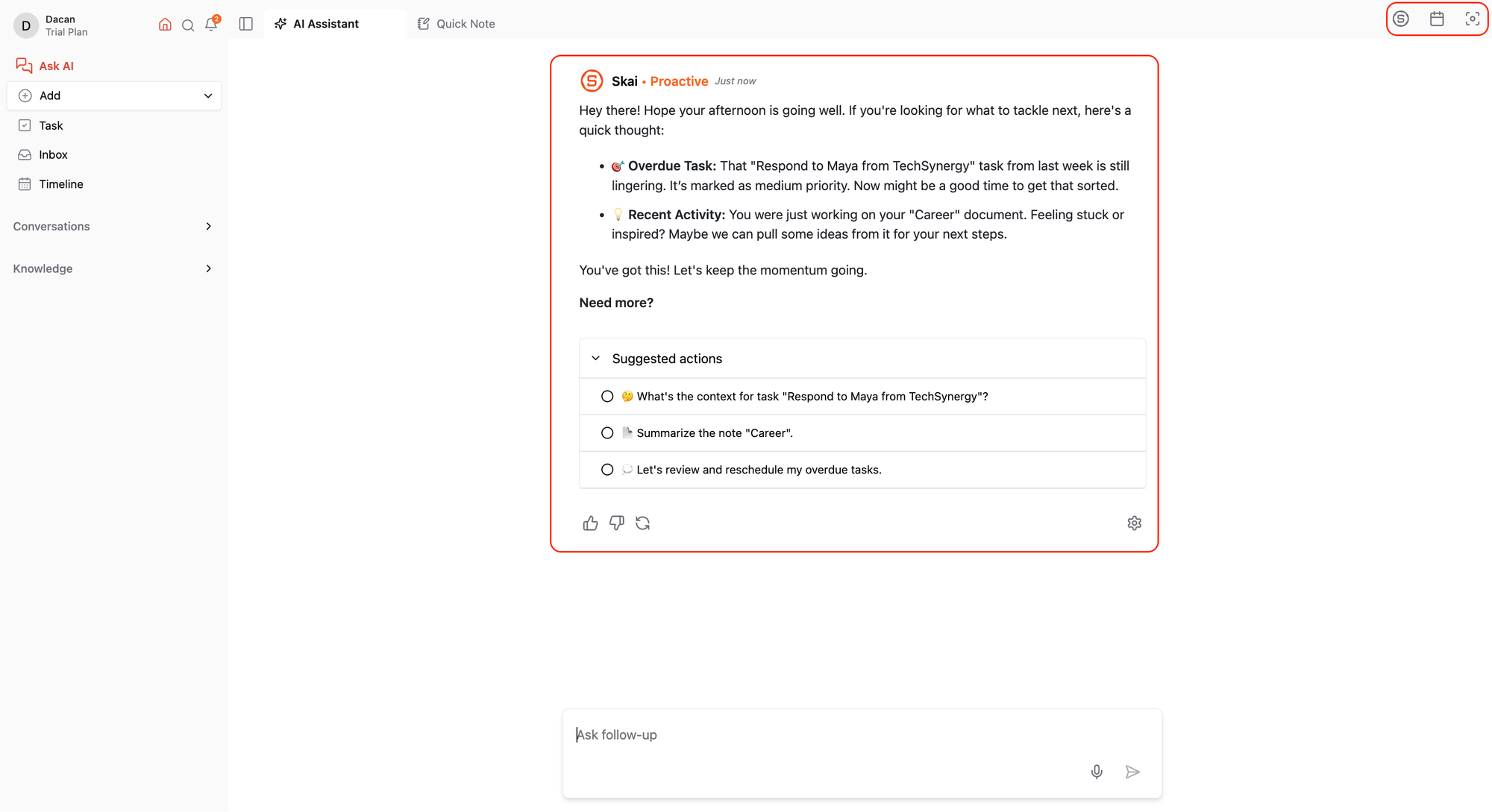
- Adjusts priorities based on deadlines, meeting load, and unfinished tasks
- You can ask it to:
→ “Replan my day, I’m skipping the afternoon meeting.”
→ “Schedule deep work blocks between client calls.”
🗂️ Turn Chaos into Clarity
- AI turns messy thoughts, notes, or email threads into clear task lists and reminders
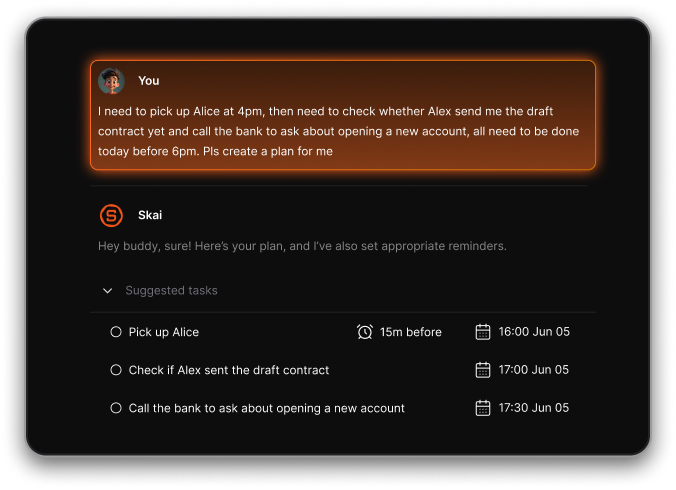
- Example:
→ “Remind me to finish the Q2 slide deck before Thursday’s pitch.”
→ “Break this brainstorm into actionable next steps.”
🧠 Synthesizes Insights From Messy Sources
- Great for people juggling multiple projects, unstructured notes, or ADHD-style work habits
- Pulls out insights from long documents, scattered thoughts, or complex discussions
- Example:
→ “Summarize key takeaways from this 5-page product strategy note.”
→ “Extract all client questions from today’s discovery call.”
🧠 Example AI Workflows in Saner.AI
| Situation | What Saner’s AI Does |
|---|---|
| You brain-dump 10 thoughts in a note | Converts it into a checklist, adds deadlines |
| Inbox full of reports and replies | Summarizes key updates, flags unanswered emails |
| You feel overwhelmed by everything | Generates a simplified plan, highlights top 3 priorities |
| Team sends a chaotic meeting doc | Synthesizes main decisions + follow-up tasks |
| You forgot what your past self said | Finds notes or tasks from months ago using plain English queries |
Saner.AI doesn't just automate steps - it thinks with you. That’s the power of artificial intelligence applied to real, messy, everyday productivity.
Stay on top of your work and life
If you're just beginning to explore AI and how AI applications can help you in everyday life, the articles below are a great starting point. We'll give you a clear understanding of how these tools work and how you can use them to your advantage:

